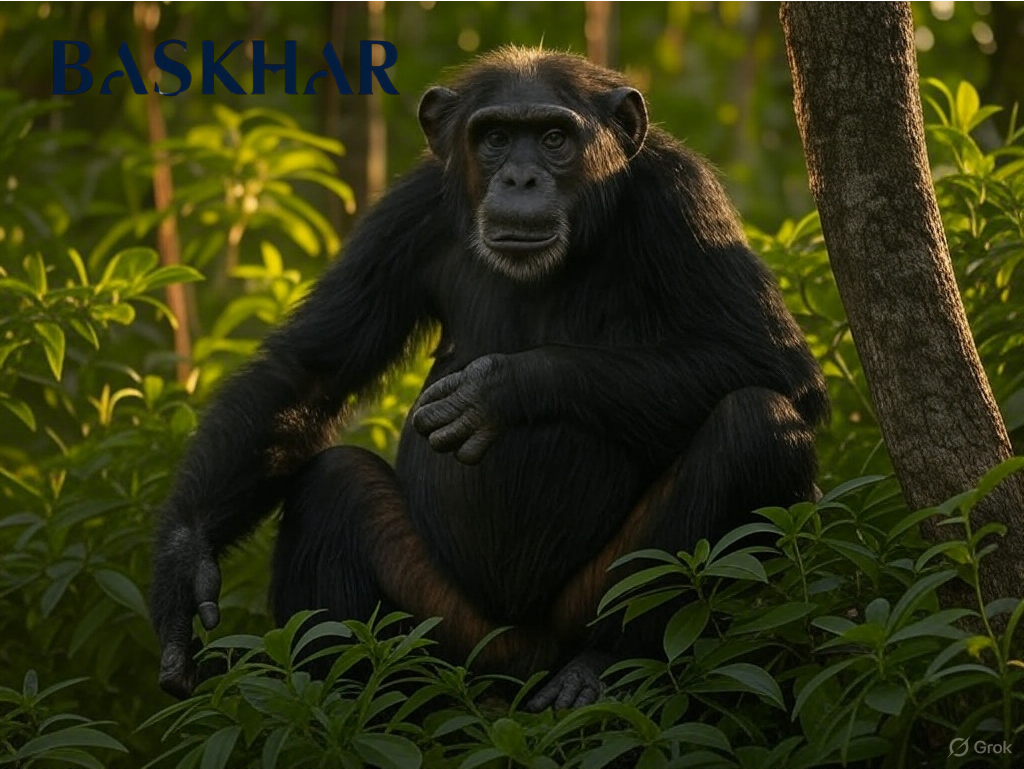Chimpanzees are among the most intriguing and intelligent creatures on Earth. Known scientifically as Pan troglodytes, these primates share approximately 98% of their DNA with humans, making them our closest living relatives in the animal kingdom. Found primarily in the forests and savannas of Central and West Africa, chimpanzees captivate researchers, conservationists, and animal lovers alike with their complex social structures, tool use, and emotional depth. In this blog post, we’ll dive deep into the world of chimpanzees—exploring their habitats, behaviors, diet, and the critical efforts to protect them from extinction.
What Are Chimpanzees? An Overview of These Remarkable Primates
Chimpanzees belong to the great ape family, which also includes gorillas, orangutans, and bonobos. Unlike monkeys, chimpanzees lack tails and have larger brains relative to their body size, contributing to their exceptional cognitive abilities. Adult chimpanzees typically weigh between 70 and 130 pounds and stand about 3 to 5 feet tall when upright. Their bodies are covered in coarse black hair, except for their faces, hands, and feet, which remain bare.
These primates are native to 21 African countries, with significant populations in Uganda, Tanzania, and the Democratic Republic of Congo. Chimpanzees thrive in diverse habitats, from dense rainforests to grassy woodlands, showcasing their adaptability. However, habitat loss due to deforestation and human encroachment has put many chimpanzee populations at risk—a topic we’ll explore later in this post.

Chimpanzee Behavior: A Window into Their Social World
One of the most fascinating aspects of chimpanzees is their complex social behavior. Chimpanzees live in communities, or troops, that can range from 20 to over 100 individuals. These groups are led by a dominant male, known as the alpha, who maintains order and protects the troop. Social bonds are critical, and chimpanzees strengthen these relationships through grooming, play, and even conflict resolution.
Chimpanzees are also renowned for their tool use—a trait once thought to be unique to humans. They use sticks to extract termites from mounds, rocks to crack open nuts, and leaves as sponges to soak up water. This problem-solving ability highlights their intelligence and adaptability, making them a subject of extensive study in primatology.
Their communication is equally impressive. Chimpanzees use a mix of vocalizations (hoots, screams, and pant-grunts), facial expressions, and gestures to convey emotions and intentions. Researchers have observed that these primates can even learn basic sign language in captivity, further bridging the gap between humans and chimpanzees.
What Do Chimpanzees Eat? A Look at Their Diverse Diet
Chimpanzees are omnivores, meaning they eat both plant-based and animal-based foods. Their diet is heavily influenced by their environment and seasonal availability. Fruits make up the bulk of their meals, with favorites including figs, bananas, and mangoes. They also consume leaves, seeds, and flowers to supplement their nutrition.
However, chimpanzees aren’t strictly herbivores. They hunt small animals like monkeys, antelopes, and even other chimpanzees in rare cases. This hunting behavior is often a group effort, showcasing their teamwork and strategic thinking. In some regions, chimpanzees have been observed eating insects, particularly termites and ants, which they skillfully extract using tools.

Chimpanzee Habitats: Where These Primates Thrive
Chimpanzees are primarily found in equatorial Africa, with their habitats stretching across the Congo Basin and parts of West Africa. They prefer dense rainforests, where tall trees provide shelter and abundant food sources. However, they’re also adaptable enough to live in savannas, woodlands, and even mountainous regions up to 9,000 feet above sea level.
Sadly, these habitats are shrinking. Deforestation for agriculture, logging, and mining has destroyed vast swathes of chimpanzee territory. As human populations expand, chimpanzees are increasingly forced into smaller, fragmented areas, leading to conflicts with humans and a decline in their numbers.
Conservation Challenges: Why Chimpanzees Need Our Help
Chimpanzees are classified as endangered by the International Union for Conservation of Nature (IUCN). Estimates suggest that only 170,000 to 300,000 chimpanzees remain in the wild—a steep decline from the millions that once roamed Africa. The primary threats to chimpanzees include:
- Habitat Loss: Deforestation for palm oil plantations, timber, and farmland has decimated chimpanzee homes.
- Poaching: Illegal hunting for bushmeat and the pet trade continues to threaten populations.
- Disease: Chimpanzees are susceptible to human diseases like Ebola, which can wipe out entire communities.
Conservation organizations, such as the Jane Goodall Institute and the World Wildlife Fund (WWF), are working tirelessly to protect chimpanzees. Efforts include reforestation projects, anti-poaching patrols, and community education programs to reduce human-wildlife conflict.
Fun Facts About Chimpanzees You Didn’t Know
To wrap up, here are some lesser-known tidbits about chimpanzees that highlight their uniqueness:
- Chimpanzees can live up to 50 years in the wild and even longer in captivity.
- They have individual personalities—some are shy, while others are bold and outgoing.
- Chimpanzees mourn the loss of group members, showing signs of grief similar to humans.
- Their strength is remarkable; an adult chimpanzee is estimated to be 1.5 times stronger than a human of the same size.

How You Can Help Protect Chimpanzees
The future of chimpanzees depends on collective action. Here are a few ways you can contribute:
- Support Conservation Groups: Donate to organizations protecting chimpanzee habitats.
- Choose Sustainable Products: Opt for palm oil-free goods to reduce deforestation.
- Spread Awareness: Share this post to educate others about the plight of chimpanzees.
By understanding and appreciating chimpanzees, we can take meaningful steps to ensure their survival for generations to come.
Final Thoughts on Chimpanzees
Chimpanzees are more than just animals—they’re a testament to the wonders of evolution and the interconnectedness of life on Earth. From their intelligence and social bonds to their resilience in the face of adversity, chimpanzees offer endless lessons for humanity. However, their survival hangs in the balance, and it’s up to us to act.
What’s your favorite fact about chimpanzees? Let us know in the comments below, and don’t forget to share this post with fellow wildlife enthusiasts!

![19232 [Converted]](https://baskhar.com/wp-content/uploads/2025/03/19232-Converted-130.png)